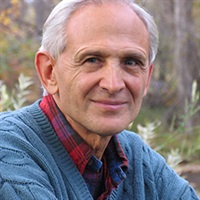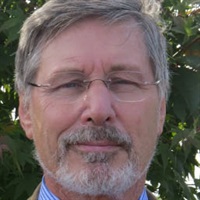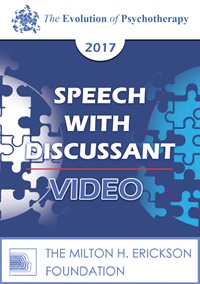EP17 Speech with Discussant 03 - Trauma and Memory: Brain and Body in a Search for the Living Past - Peter Levine, PhD and Bessel van der Kolk, MD
Credit Available - See Credits tab below.
Total Credits: 1.5 including 1.5 A.P.A.
- Average Rating:
- Not yet rated
- Topic Areas:
- Speeches with Discussants | Trauma | Somatic Experiences | Memory | Continuing Education | Psychotherapy
- Bundle(s):
- Learning Track - EP17 Trauma Stream
- Categories:
- Evolution of Psychotherapy | Evolution of Psychotherapy 2017 | Evolution of Psychotherapy Trauma Learning Track | Online Continuing Education
- Faculty:
- Peter Levine, PhD | Bessel van der Kolk, MD
- Course Levels:
- Master Degree or Higher in Health-Related Field
- Duration:
- 1:23:22
- Format:
- Audio and Video
- Original Program Date:
- Dec 16, 2017
- License:
- Never Expires.
Description
Description:
There is tremendous confusion in work with traumatic memories, often leaving clients and their therapists confused and insecure. In this lecture we will discuss the different types of memory (both explicit/conscious & implicit/unconscious) in resolving traumatic reactions, while avoiding the creation of "false memories."
Educational Objectives:
- List and comprehend the different types of memory systems.
- Explain how to work with procedural ("body") memories.
- Demonstrate how to avoid the pitfalls of evoking spurious memories.
*Sessions may be edited for content and to preserve confidentiality*
Credits
1.5 credits available.
The Milton H. Erickson Foundation, Inc. is approved by the American Psychological Association to sponsor continuing education for psychologists. The Milton H. Erickson Foundation, Inc. maintains responsibility for this program and its content.
THE MILTON H. ERICKSON FOUNDATION Policy on Disclosure
The Milton H. Erickson Foundation is proud of the conferences and other
educational opportunities it sponsors, taking care that the conduct of
these activities conforms to the standards and principles of behavioral
and medical sciences, thus ensuring balance, independence, objectivity
and scientific rigor in all individually sponsored or jointly sponsored educational
activities.
All faculty members participating in a sponsored activity, and those who
review and therefore are in control of content, are requested to disclose
any relevant financial relationship prior to the CME activity, including but
not limited to specific commercial interests, financial remuneration received
by faculty member or spouse, and what role or activity was performed
for this remuneration. If a conflict of interest exists as a result of
a financial relationship it will be resolved prior to the activity. A faculty
member will not be allowed to present if the conflict is not or cannot be
resolved.
Faculty

Peter Levine, PhD Related Seminars and Products
Peter A. Levine, PhD, holds doctorates in both medical biophysics and psychology. He is the developer of Somatic Experiencing®, a naturalistic, body-awareness approach to healing trauma, and founder of the Somatic Experiencing® Trauma Institute, which conducts SE™ trainings throughout the world and in various indigenous cultures. Some of Dr. Levine’s other achievements include being a stress consultant for NASA during the development of the space shuttle project, as well as a consultant to the Sandia Labs during their report on preventing terrorism commissioned by the Department of Homeland Security in 2002. Dr. Levine was a member of the APA Task Force: Psychologists for Social Responsibility in developing responses to large-scale disasters and ethno-political warfare. He is currently a Senior Fellow and consultant at The Meadows Addiction and Trauma Treatment Center in Wickenburg, Arizona.

Bessel van der Kolk, MD Related Seminars and Products
Bessel A. van der Kolk M.D. has been active as a clinician, researcher and teacher in the area of posttraumatic stress and related phenomena since the 1970s. His work integrates developmental, biological, psychodynamic and interpersonal aspects of the impact of trauma and its treatment. His book Psychological Trauma was the first integrative text on the subject, painting the far ranging impact of trauma on the entire person and the range of therapeutic issues which need to be addressed for recovery.


